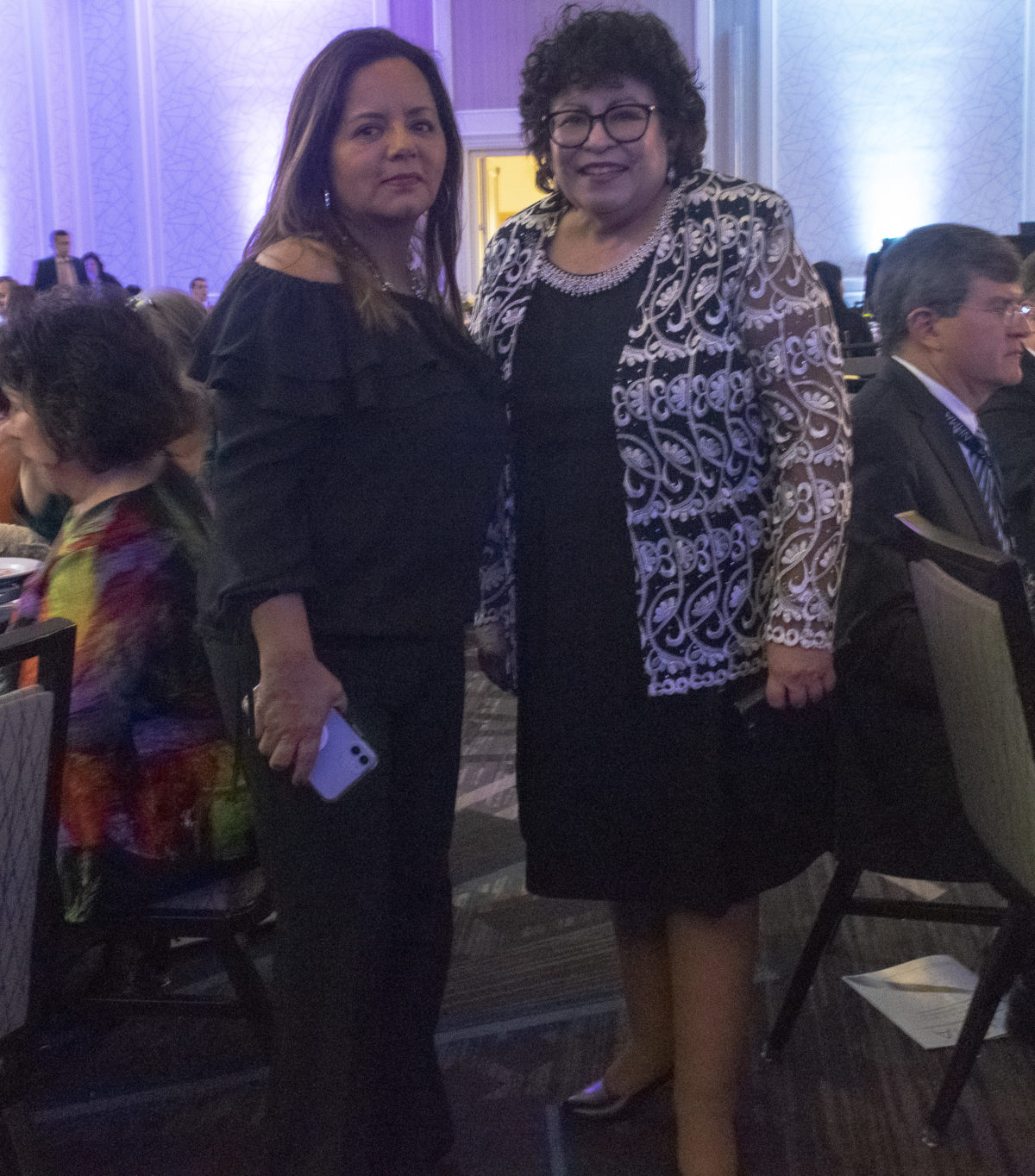The National Hispanic Medical Association convenes its 25th annual conference and gala to further educate physicians and celebrate healthcare leaders during the pandemic
By Sarah Berjan
The National Hispanic Medical Association (NHMA) held its 25th annual conference and awards gala to gather health care professionals in learning strategies to improve health and encourage the spread of critical health information to Hispanic communities nationwide.
The NHMA focused on the social determinants and well-being during its four-day conference in Arlington, Va., as COVID-19 cases, hospitalizations, and deaths wane nationwide. The event comes during a time when the Hispanic community has been disproportionately impacted by COVID-19, highlighting the lack of health and economic security.
Established in 1994, the NHMA represents 50,000 licensed Hispanic Physicians in the United States with the mission to empower them and improve the health of Hispanics throughout the nation.
Through a cumulation of workshops, panels, and networking regarding Hispanic priorities, the NHMA brought together medical institutions, leaders, students, health and policy professionals to educate and inspire Hispanic physicians to better serve underserved communities.
This year’s event received sponsorship from Centene Corporation and support from several public and private health sector stakeholders to reduce the social determinants of health and the emotional impact of COVID-19 that was further exacerbated in Hispanic communities.
A top priority for the NHMC is to promote health equity within COVID-19 and beyond for Hispanic populations across the county.
“NHMA is making vital contributions to ensuring the health and well-being of our Hispanic communities by breaking down the barriers to preventative care and promoting cultural and linguistic sensitivity in health services,” Congressional Hispanic Caucus chairman Raul Ruiz said.
The NHMA coordinated the annual conference and awards gala, which recognized health care leaders in their communities, with NHMA chapter meetings, congressional briefings, advocates for Hispanic health care priorities, mentors, and students, and nominates members to leadership opportunities.
During the conference, the U.S Department of Health and Human Services, Senate and Congress, and Latino health experts, along with poster presenters and exhibitors shared their vision and priorities to support access to affordable, quality health and wellness nationwide.
This year, the NHMS announced it continues its “Vaccinate4All” Campaign with the Centers for Disease Control and Protection (CDC) and Johnson & Johnson to increase access to COVID-19 vaccination and educate communities.
The nonprofit historically developed national campaigns including Chronic diseases such as obesity, diabetes, heart disease, HIV and Heart Disease, and COVID-19 briefings, where it continues educational initiatives.
The NHMA expanded its Medical School Liasion Program to include organizational membership that includes faculty and resident diversity and is linked with the Foundation National Center for Hispanic Health Research.
According to NHMA President & CEO, Elena Rios, MD, MSPH, MACP, the organization has built a network of pre-med students through its college health scholars program and provides mentors and scholarships through its Latino Medical Students Association. The organization has a council of young residents, and this year, NHMA began counseling specialties.
“We believe that building the leading network of Hispanic Health care professionals and community leaders is key to innovation and systematic change that will lead to health equity in the United States,” the NHMA Board of Directors wrote in a letter.
The NHMA was developed in 1993 as a result of a meeting of a core group of physicians who came together at the White House to work on health care reform. The core group decided an organization was needed in Washington DC to give voice to Hispanic and Latino physicians and advocate for Hispanic health with the federal government.
It grew from a history of organizing efforts dating back to the 1960s when Hispanic medical students formed regional associations and local societies focused on social and charitable activities.
